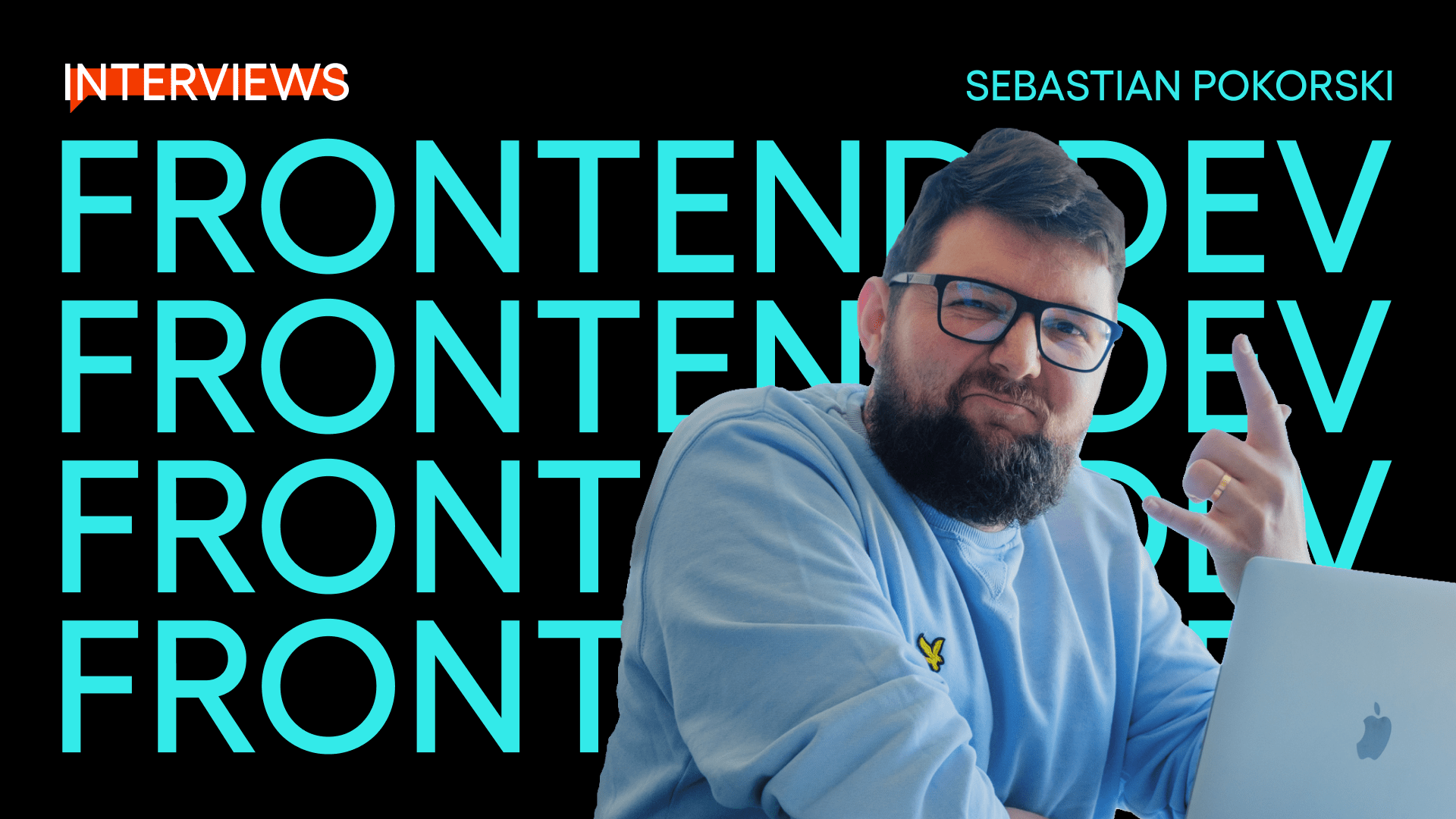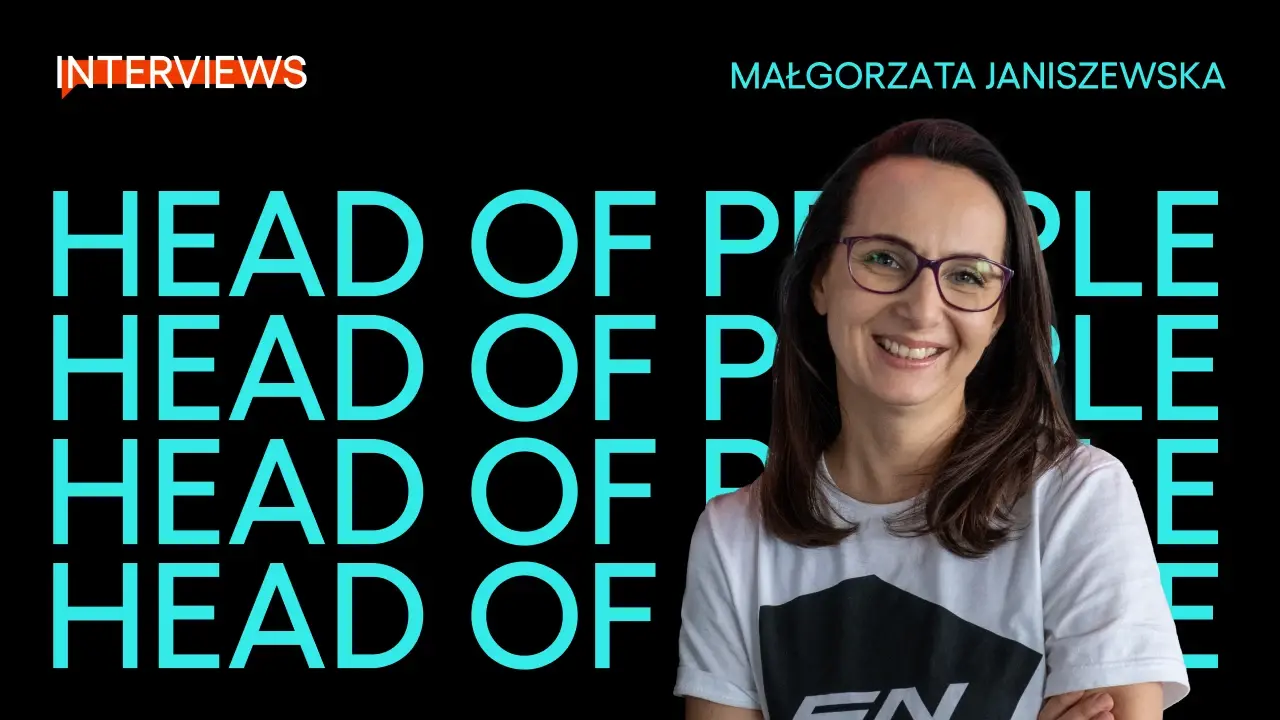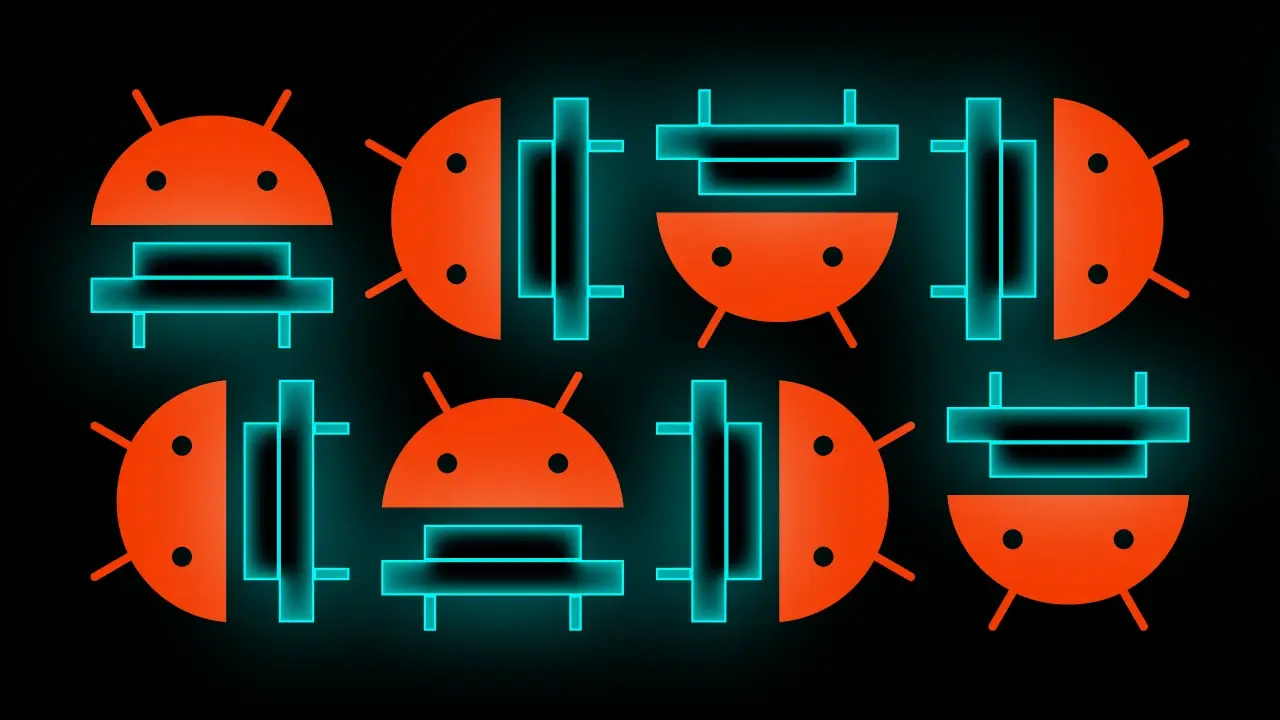#TeamSpeednet: Sebastian, Frontend Developer


My next interviewee is Sebastian, a Frontend Developer and former Laboratory Diagnostician who joined Speednet more than five years ago. We discussed the rebranding, the similarities of working in a lab versus Software Houses, and his challenges when taking on a new profession. Get ready for a fascinating story!
Hi Sebastian, why don’t we start with a standard question? How long have you been working at Speednet, and how did you get here?
Sebastian: I’ve been on board for 5.5 years, I’ll turn 6 in July. How I got here is quite a story. I am a laboratory diagnostician. I graduated from the Medical University of Gdansk and worked in the profession for six years. However, life verified my plans. I needed a change and decided to try my hand at IT.
At first, I tried to learn on my own. Unfortunately, I have to admit that it didn’t work out well for me. I searched various job portals, sent resumes, participated in interviews, and went through multiple exams and tests. I received feedback that my communication and English language skills were high, but technically, much work is ahead of me. On the one hand, this clipped my wings, but at the same time, it gave me hope and the realization that I had to press on to achieve my goal. So one day, during another research of IT companies in Gdynia, I came across an interview on trójmiasto.pl with Piotr (our CEO). After reading the article, I visited the company’s website. What interested me was the pleasant atmosphere, lots of exciting integrations, and no dress code. The profile already stood out from other companies. So I decided to visit the office, which in 2018 was located in PPNT in Gdynia.
I just walked in there without making an appointment or announcing anything. Just took my resume with me and said: “Good morning, I’m looking for a job.” It was no secret that the HR girls were shocked, but they invited me for a short interview. I told them my story and was told they were not looking for anyone but that I may return here in a few months when I learned something. I was captivated by their approach then, that instead of chasing me down, they just talked to me. So I followed their suggestion, continued my studies, and returned after a few months, again without prior notice. Karolina, with whom I spoke, said that she admired my persistence and would arrange a technical talk for me to reward my patience and willingness to act. So that’s what happened. I had my first conversation with Sebastian, a senior at our company who was in charge of technical talks. Unfortunately, Sebastian said my knowledge left much to be desired, and he was right. In retrospect, my biggest problem was figuring out exactly what I was supposed to learn.
I then had an HR conversation with Karolina, which went much better [laughs]. We agreed that after two weeks, they would get back to me with feedback, and they did. I received a phone call saying they wanted to give me a chance, provided that I studied intensively under Sebastian’s guidance for three months of my notice at the lab. With his help, I learned a lot; he was the one who pointed out specific things for me to learn. He was my mentor who pushed and motivated me. This was much needed; I learned faster and understood how things work. Sebastian didn’t give me a discount and thanks to that I am where I am.
And that’s what captivated me about Speednet – the pro-human approach.
All right. Why did you decide to change your career path and enter the IT industry?
Sebastian: Where did the idea come from? The decision to change careers came mainly from the need to reconcile personal life with work. My wife and I concluded that combining personal life with working 300 hours a month was impossible. I had two options. I could continue working in the laboratory, earning money and sacrificing my personal life. The second option was to change careers to one that would give me a more flexible schedule, work Monday through Friday, and earn an attractive salary.
At that moment, IT seemed a reasonable solution. It was the last moment in the industry to take advantage of the situation. I was in the previous “cast of candidates” who managed to get into the industry without much knowledge or technical skills. It took me 1.5 years from when I decided to rebrand to when I started my first job. In the meantime, I completed a short weekend course in Warsaw. It wasn’t anything serious, and I focused on self-study, so it took longer. One of my lab mates decided to follow in my footsteps, and here I must admit that with my help and guidance, he found a job in less than a year. He became a junior with pretty cool knowledge. Later, I had friends who were also trying to change industries, and they had it a little more complicated. The boom in inexperienced people and in investing in their development is over. The market has become more demanding, and today, jumping quickly into the industry without experience and established skills seems less feasible. Therefore, to the company, Karolina, Piotr, and Sebastian, I am incredibly grateful that they gave me this opportunity.
In addition, one more situation made me decide to change careers. The turning point made me realize I would have to do it now or never. In the lab, I contracted the blood of a patient who died of hepatitis C (HCV). There is no vaccine or cure; it is a nasty virus. After contracting it, I got tested right away, then after a month, after three and six, waiting for the result was very stressful. I was extremely fortunate that I did not get infected. Few people realize that laboratory work can be dangerous and very responsible, as test results directly impact patients’ lives. Knowing that your mistake could cost someone’s life is very aggravating. Working in IT is a different dimension of responsibility; no one will die because of your mistake. There is stress, of course, but it is a different kind of stress.
Tell us your challenges during the rebranding and how you dealt with them.
Sebastian: First of all, time, or rather lack of time. I had a lot of responsibilities: home, family, taking care of my newborn son, working 300 hours a month in the lab, and still learning programming. Every day, I felt like a zombie; work in the lab required constant attention, and on-call duties could last as long as 24 to 36 hours. I usually had only one free weekend a month, so I devoted every free moment to studying. I often sat down to study and courses after nights and between on-call periods.
Another challenge was needing a mentor at the beginning of my journey. Although I read extensively and followed industry trends, I still needed help understanding many concepts. The vast amount of knowledge to be assimilated made the entry threshold seem high. I had to assimilate a broad foundation to get started. This is a universal truth, regardless of the field of science – laboratory diagnostics, chemistry or the IT industry. In the beginning, you need to learn and understand many basic concepts. Especially since I was another casual computer user. I liked to play various games and tinkered with some basic stuff, but that was where my knowledge ended. I was always on the other side as a user rather than a developer.
One of my mistakes was also the fear of starting to write code. I wanted to learn the theory first, accumulating as much knowledge as possible because it would be easier for me to use it in practice later. But this is not medicine. Only after some time did I realize that the best way to learn is to solve problems in practice and create code on the fly. In IT, you have the opportunity to learn from mistakes.
If you were once again faced with the decision to change industries, would you choose to do so?
Sebastian: Of course I would. Without hesitation, deciding to change careers was the best decision I could have made. Working in IT is a salvation for me, both professionally and personally. Even from a personal life perspective, especially when I don’t have family on site to help with child care, working in IT gives me a lot of flexibility. When my son is sick, I can work remotely to care for him during the day and catch up on work in the evening. The lack of rigid working hours, except for some meetings or tasks, allows me to manage my time effectively. What is important is completing a task on time rather than a specific time to complete it.
Of course, there were moments of doubt at the beginning of my IT career. The first week or two passed as I was already working at Speednet, and I remember looking at the monitor and wondering what I was doing there. Thoughts of returning to work in the lab came mainly because of the financial sacrifices I had to make. I earned more in the lab than initially at Speednet, but I worked 300 hours each, so it “scaled up” nicely.
Personal issues aside, working at Speednet gives me a lot of satisfaction. The context, problems, vocabulary, and business change with each new project. You sometimes do different things because every project is different. If you want, you can change the programming language. There are plenty of options, and you need a development ceiling. Unfortunately, in my earlier profession, these options were minimal.
You must admit that you took your chance 100% and took a risk; you are on board. Tell us now: What do you do at Speednet?
Sebastian: I’ve been pretending to program for five years, and no one has snitched yet [laughs]. Seriously, I’m a frontend developer specializing in React. I’m responsible for implementing visual elements visible to users and with which they interact in the application. Simply put, I make everything look nice and work smoothly, and the user has a pleasant experience using the application. What is important to me in my work is that I can immediately see the results. This is motivating for me.
If I had the opportunity today to choose the direction of my career path, and with the knowledge that I currently have, I might be interested in Machine Learning. When I started my adventure in programming, artificial intelligence was just in its infancy and gradually became a popular trend. Today, it is an integral part of the industry and belongs to the mainstream.
Are there any skills or experiences from your previous job that have proven helpful in your current role in IT?
Sebastian: Yes, first and foremost, figuring out the “why.” In my previous job, if a patient had a strange result, I had to figure out why and where it came from. The same is valid here. If something doesn’t work, I want to know the cause. I like to explore the topic by asking questions to understand the situation better. The so-called forging on the sheet metal of various schemes is only worthwhile if you know them.
Another thing is precise communication. Just as I had to be exact in the lab, it comes in handy here. I also pay attention to details. I used to have to measure volumes accurately, but now I focus on correct coding. Assertive communication is also essential. I need to know how to deal with demanding customers when dealing with nervous or stressed patients.
Finally, a rather important sub-point is responsibility. You take responsibility for your work; you sign your name. If you made a mistake, accept the criticism, apologize and correct it. You won’t make that mistake again. If you hit a challenging project, try to get it out on the straight and narrow. You should roll up your sleeves and get to work if something is wrong. Of course, there are various situations where you bump into a wall and need a redesign, but it’s worth taking on challenges and not giving up on the first difficulties.
Do you have any advice for those who are considering rebranding? Some specific steps may make the process easier.
Sebastian: Yes, find someone in this world who can guide you. Someone who has knowledge but also has the soft skills to be able to give you as many valuable tips as possible.
I had a colleague who introduced me a bit to the IT world, but he needed to gain soft skills. He wanted to help me, but he needed to understand that I was a beginner and needed help comprehending some apparent things to him. Understanding the needs of the learner is vital. Finding a mentor with knowledge and empathy is extremely valuable, but unfortunately, it’s not entirely up to you. When I entered the IT world, I was under the impression that there were mathematical and computer science geniuses here alone, with an IQ of “700.” It turned out that they were all normal people and that everything could be learned. My advice? Don’t give up.
When changing careers to IT, it is worth focusing primarily on developing English and communication skills. English is essential, and in my case, it proved crucial. You can learn a technical language in a few weeks or months, but English and communication skills must be mastered slowly. It may be challenging to understand specialized terms initially, but learning the vocabulary and its context is important. Giving yourself time to adapt to the new work environment is also essential. Here, I have a small anecdote about naming. On my first day out of the elevator, I met someone in the corridor with whom we said hello, and the person added that he was going to a stand-up. I thought, “Oh boy, how great, they have stand-ups in the office with comedians.” It wasn’t until later that I realized it was about a status meeting, and it made me feel silly. In retrospect, I’m very amused by this story. That’s how a stressed person comes in and takes words out of context [laughs].
Let’s get to the last question already. What do you value about Speednet?
Sebastian: This may sound like HR and PR, but I value the atmosphere and the people most. I appreciate that when recruiting, the company considers not only the candidate’s technical skills and knowledge but also his character and communication skills. You can be the greatest programming genius, but if you are arrogant, there will be no place for you here.
If you don’t know something, you can always ask for help. Everyone is willing to cooperate and knows we are playing to one goal. There is no sick rivalry here. If you have a problem and you communicate it, you will not be left alone.
What is still important to me is the work culture. Even in difficult moments, such as employee layoffs or market changes, everything is maintained at the highest level of culture, respect, support, and communication. I can’t imagine a situation where you come to the office and your access card doesn’t work, as in other companies.
In addition, there is a flat organizational structure. At every event, you can talk to the CEO, who doesn’t want to be called and treated like a CEO, just a colleague. You respect him and know he is a decision-maker, but that doesn’t change the fact that you can usually talk to him. I remember my first meeting with Piotr, whom everyone calls Pit. I only knew him from an interview, which inspired me to apply. At the first event, I said hello and heard: “Oh, you’re the new guy with the empty resume.” I told him his interview encouraged me to knock on Speednet’s door. Pit said he appreciated it very much and respected my persistence.
In addition, I like that I can high-five with anyone in the kitchen and not stress about who I’m talking to or what position the person is in. I could continue for a long time, but this human approach sets Speednet apart.




